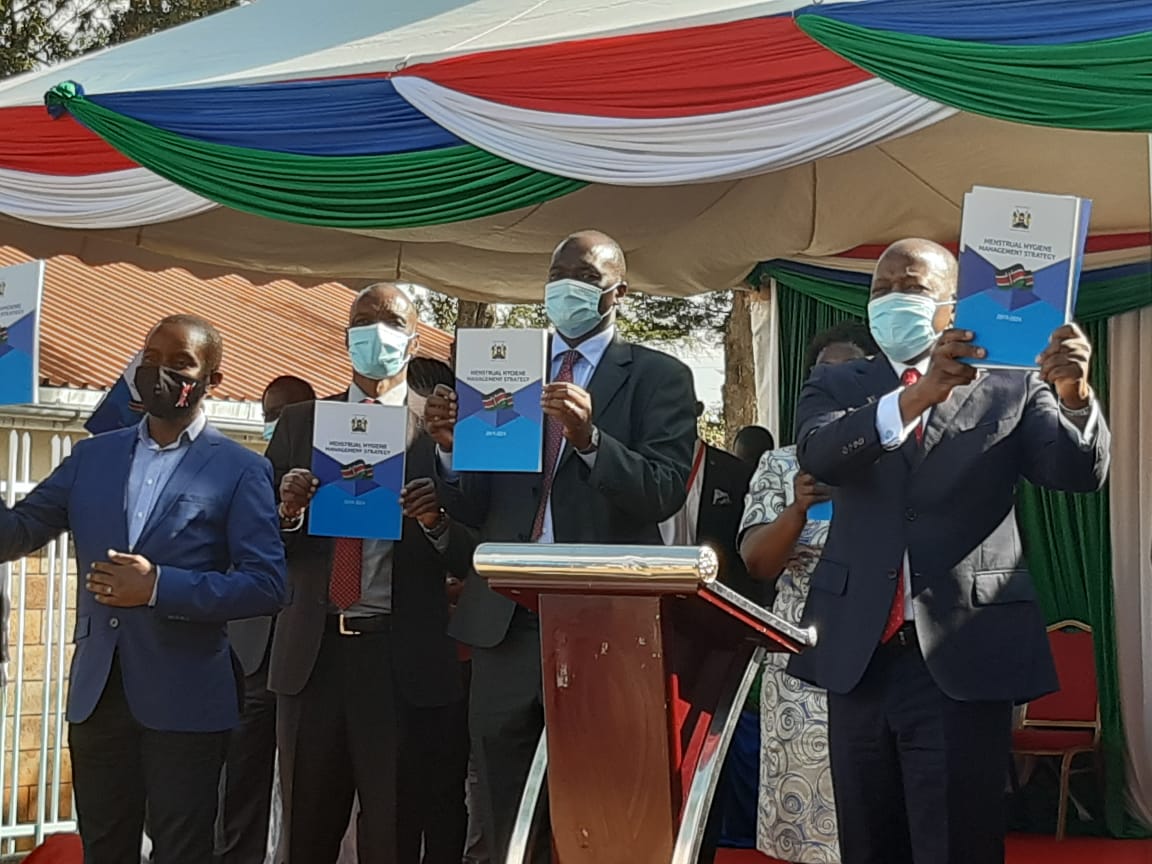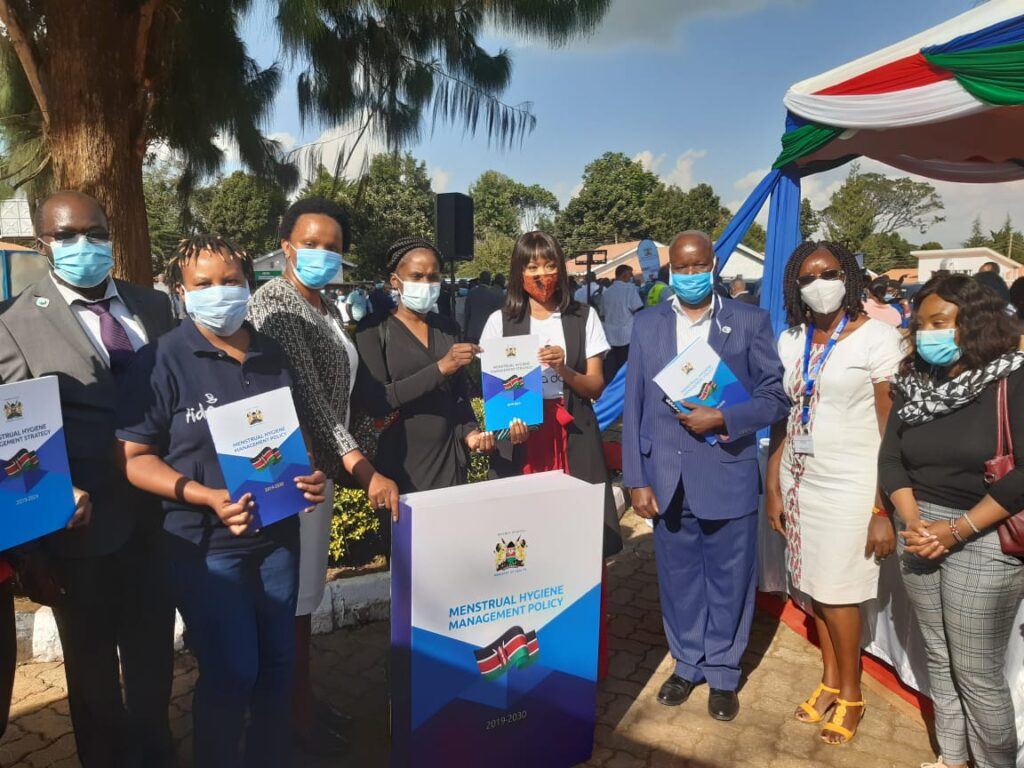

With the support of partners and stakeholders such as Amref Health Africa in Kenya through the Water Supply and Sanitation Collaborative Council (WSSCC), the Ministry of Health has launched the country’s first Menstrual Hygiene Management (MHM) Policy and Strategy that provide an opportunity for increased prioritization of the MHM agenda in the country.
Launched on the World Menstrual Hygiene Day marked on 28 May 2020, these key documents provide a framework for policy implementation and clarification of the roles and responsibilities of different stakeholders. The Kenya Menstrual Hygiene Management Strategy sets out strategic focus areas with the aim of mainstreaming MHM, strengthening partnerships and coordination, development and maintenance of Water sanitation and Hygiene (WASH) infrastructure, strengthening MHM education and awareness, promoting advocacy and resource mobilization, and establishing effective Monitoring and Evaluation systems for MHM.


The strategy enables stakeholders to collectively and effectively improve MHM in Kenya, thereby ensuring the wellbeing of girls and women, as well as implications for the environment and ultimate gender equality in the country.
Kenya is the first country to develop a standalone MHM policy and strategy developed with multi-stakeholder input under the leadership of the Ministry of Health. Stakeholder input into developing the two documents was done through various national technical working groups where Amref Health Africa is represented, specifically the water, sanitation, and hygiene (WASH) in schools technical working group, hygiene promotion technical working group (which coordinates the national MHM agenda), and the sanitation promotion technical working group that is co-convened by Amref.
Through integration in its WASH and reproductive, maternal, newborn, child, and adolescent health programmes, Amref Health Africa implements holistic menstrual hygiene management to promote equitable access, breaking the silence around MHM, addressing safe and hygienic management and disposal of menstrual products. Amref will continue to apply innovations geared at addressing challenges facing menstruation.
Amref Health Africa and other stakeholders working with the Ministry of Health will continue supporting the implementation and dissemination of the MHM strategy and policy and monitor the results thereof.
The two documents can be accessed from the Ministry of Health’s website.
Nairobi, Kenya – May 2025 – A pivotal step toward accelerating health system transformation in Kenya…
Dar es Salaam, Tanzania – 5th May 2025 – Amref Health Africa-Tanzania and the University of Dar…
"When the drumbeat changes, and we have seen the drumbeat changing, we need to adjust…
By Rahul S Reddy Kadarpeta, Jane Nyambura, Leonora Mbithi Over the past decade, several African…
Despite decades of progress, malaria continues to rise globally, with a child dying from malaria nearly every…
The era when Africa could rely on foreign aid for its health priorities is coming…